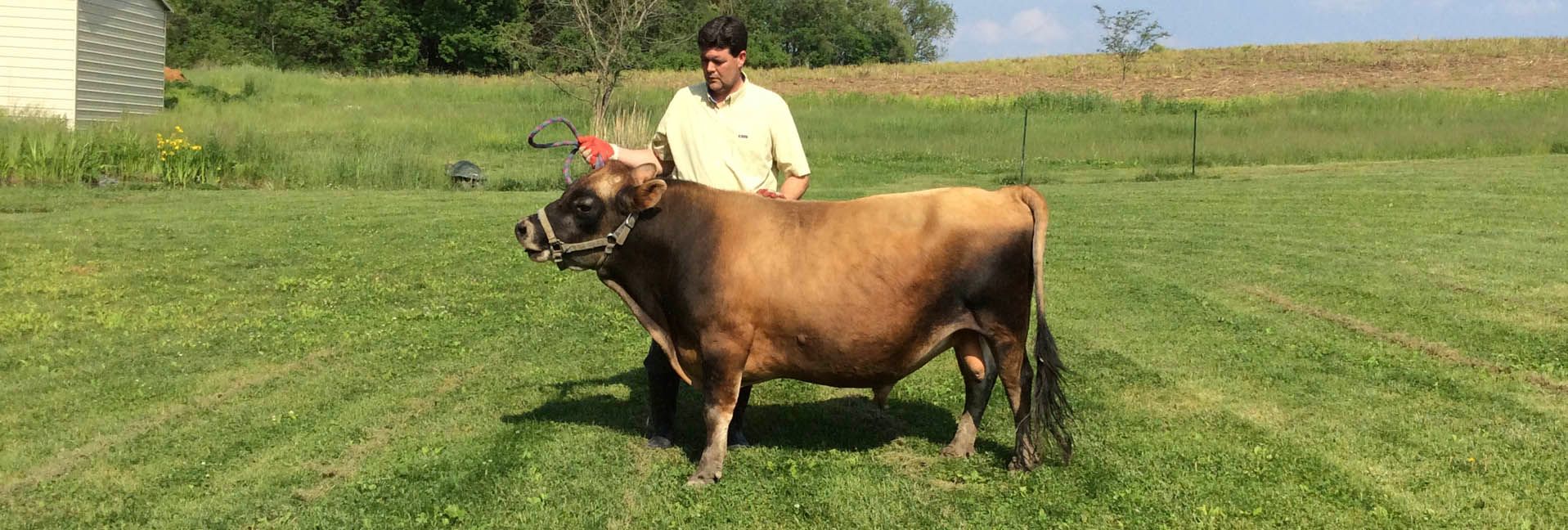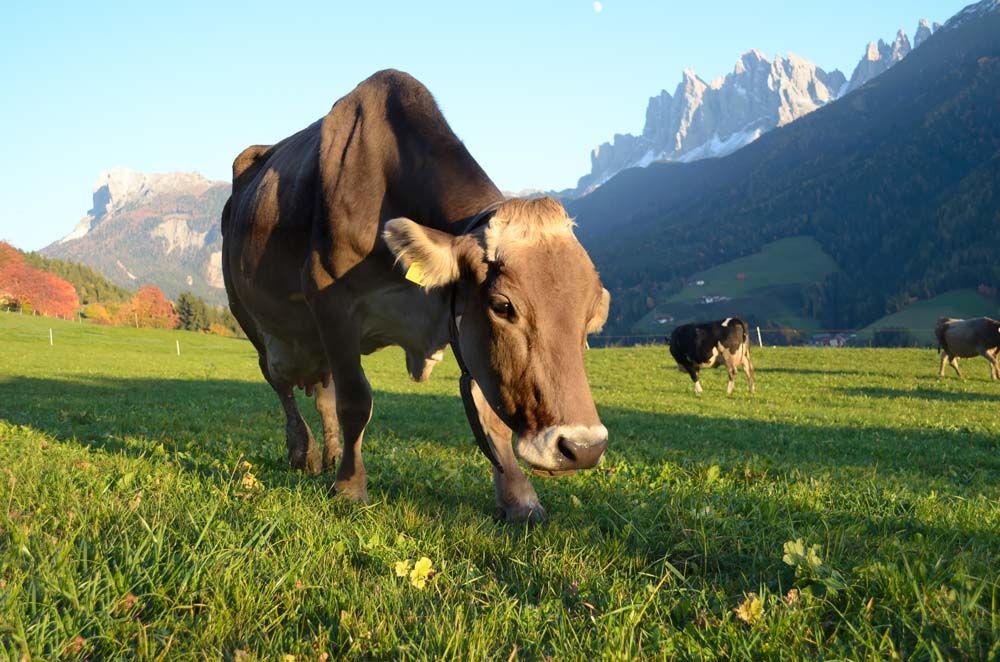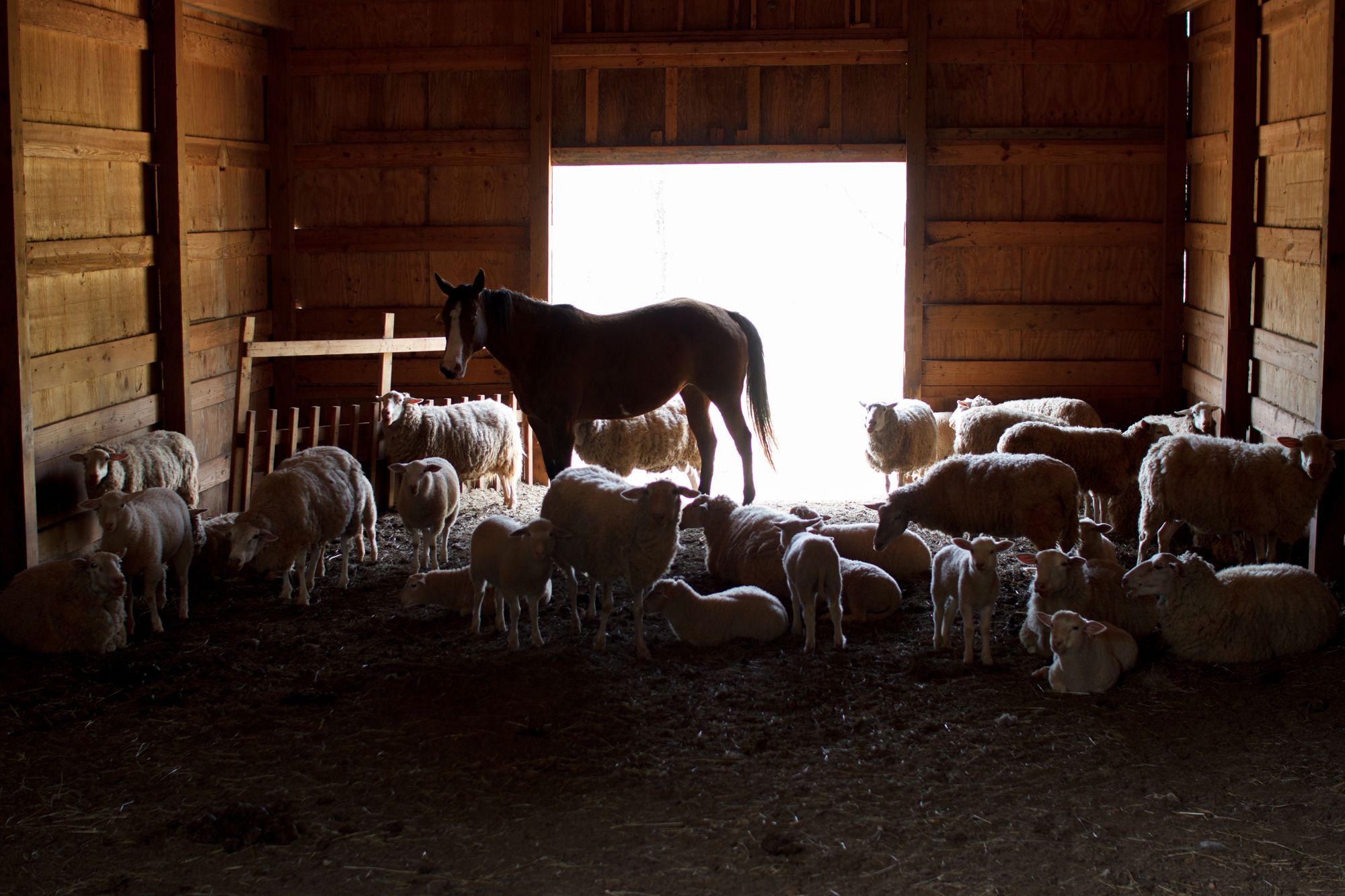Miniature Jerseys - A breed profile


What's lovelier than a Jersey cow? Enormous eyes, a docile expression, and beautiful color—it's easy to see why Jerseys are beloved by dairy cattle enthusiasts. But in many cases, a standard-sized dairy cow provides far too much milk for a single family to utilize, meaning that a good portion of that precious milk might go to waste. In short, what many small-scale and beginner farmers seek need a smaller dairy cow that is easy to manage, easy to care for, is less expensive to feed, requires a smaller pasture, and provides plenty—but not too much—milk. Oh, and if it could be as beautiful as a Jersey cow, that would be the icing on the cake.
Sound impossible? It's not!
Going back to the original
The Miniature Jersey is just what its name implies: a scaled-down version of the immensely popular Jersey breed. However, this thinking is actually a bit flawed, as it is actually the Miniature Jersey that is the true “original” Jersey. Over time, the industry demand for larger cows that could provide higher milk volume led to the gradual increase in the breed's size, resulting in the larger modern Jersey with which we're familiar with today. The Miniature Jersey breed of today descends from the older bloodlines that result in the smaller size.
Maureen Neidhardt of the American Miniature Jersey Association and Registry, LLC, knows all about keeping miniature cattle for small-scale purposes. “My husband, Marlin Neidhardt, and I have raised Miniature Jerseys for about 8 years,” she says. "The more we learned about this little breed of dairy cattle, the more impressed we were with the possibilities of them becoming the ideal ‘homestead’ cow of the future.”
Miniature Jerseys are perfect for small farms, says Neidhardt, while cautioning that potential owners must do their homework. "Learn the details of [Miniature Jersey] care and how [you] will deal with the calves and use the milk to the best advantage. Once the owners and the little cattle are proven to be a good match, there is a great deal of benefit that can be derived from these fine, scaled-down milk cows.”
Miniature Jerseys by the numbers
Neidhardt notes that the Miniature Jersey breed is sub-divided into size categories, with true Miniature Jerseys reaching up to 42 inches when measured at the hip, and the larger “Mid-Miniatures” measuring between 42 and 46 inches. Cattle over 46 inches are able to be registered as breeding stock.
“These various categories allow for a satisfactory size for all owners. Breeding to smaller-size bulls also brings the size down each generation," she says, adding that breeders do try to downsize their cows for a variety of reasons, including ease of handling, decreased expenses, and general aesthetic appeal. "Let's face it," says Neidhardt, "the little calves are very cute and so are their parents!”
It’s easy to agree with that, since the Miniature Jersey delivers all of the attractiveness of the larger Jersey in a smaller package.
The benefits of ‘going tiny’
There are plenty of potential benefits to keeping a small-breed cow on a homestead. For one thing, they are typically easy to handle, and can be less intimidating to a first-time handler. They don’t require as much space in the barn, and can generally be kept on smaller-acreage properties than might be possible with standard Jersey cows. However, it’s important to keep in mind that Miniature Jerseys are still cattle, first and foremost.
“One misconception about Miniature Jerseys is that they are pets,” says Neidhardt. “They can become very pet-like, but they are bovines and even small bovines require management and their owners need to acquire the art of understanding them and how to care for them. Little cows don’t necessarily feel ‘small’ so they have regular cow mannerisms.”
A standard-sized milk cow can easily supply upwards of ten gallons of milk per day, which is great for large-scale milk producers but may present a bit of problem for a family who just wants a cow that supplies enough milk for their own needs (as well as a bit extra to make butter and cheese). Miniature cows generally produce 2 to 4 gallons of milk per day—a number that is much more easily managed by a family operation.
The weight of a standard-sized Jersey cow can range from 800 to 1200 pounds, while standard Jersey bulls can weigh as much as 1800 pounds. Miniature Jerseys, on the contrary, generally range from 500 to 800 pounds, and require only about one-third of the feed or pasture that the standard-sized Jerseys would require.
A real cow
But farmers need to be aware that miniature cows and full-size cows require a similar investment of time. “There is a commitment required by the owner as the Miniature Jersey cow needs to be on a schedule,” notes Neidhardt. “They must be fed and cared for [in a timely manner] and milked twice a day, (unless the calf takes up one of the milking times). They are not just a ‘novelty breed’ but a real producing cow that can teach your family life’s values, put food on the table, and become a very precious member of your farm.”
In addition to milk, your Miniature Jersey can provide an annual calf that can become part of the herd or sold. Some Miniature Jersey cattle farmers also utilize the breed for meat, providing another potential use for this versatile animal.
But perhaps one of the most interesting benefits of a keeping a miniature cow is that it provides people with an accessible way to capture that unique “connection to the land” that farming brings. When you farm—especially with an animal like a cow that requires a commitment and precise schedule—you’re providing your family with a “real” experience that may stay with them and enrich them even more than the milk will. And thanks to its small, easy-to-handle size and endearing appearance, the Miniature Jersey is a superior breed to fill that need.
For more information, visit miniaturejerseyassociation.com
Tags:Country Critters

Acreage Life is part of the Catalyst Communications Network publication family.














